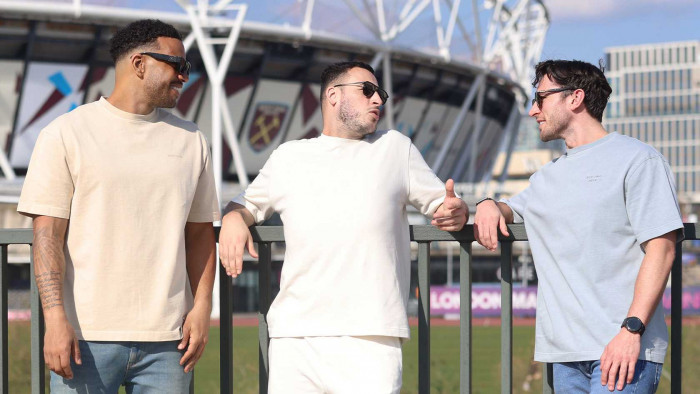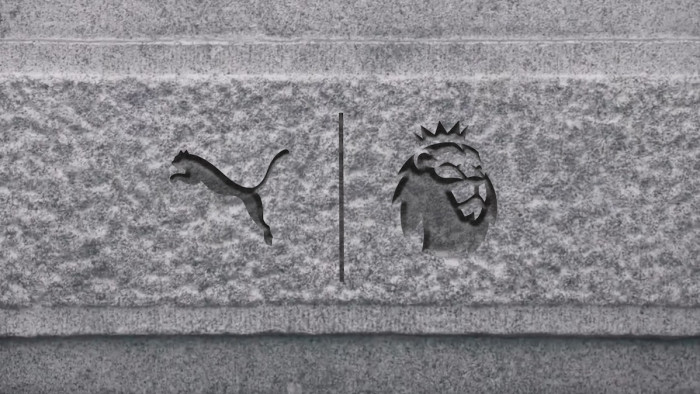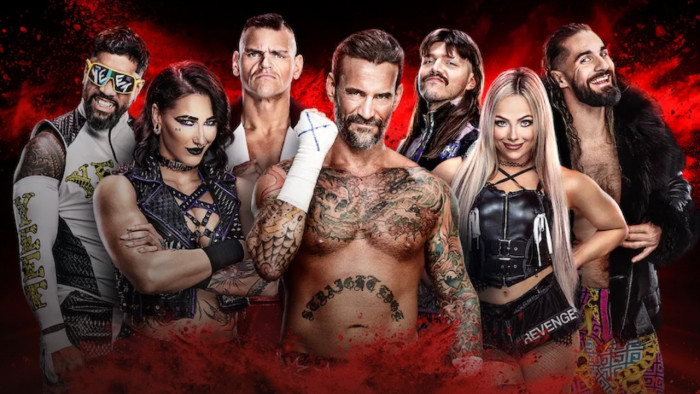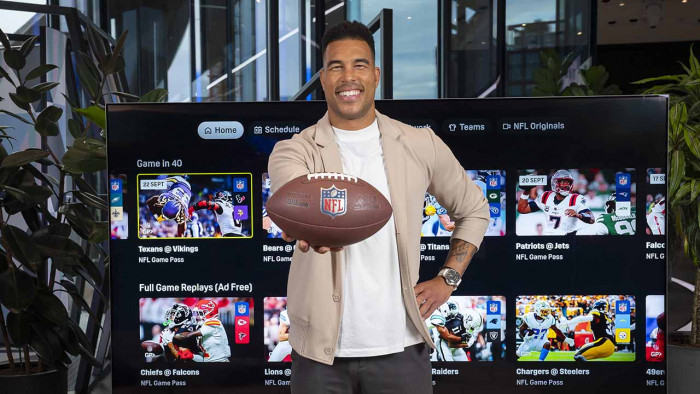Upsets, great goals, controversial decisions – all without anyone kicking a ball. Jimi Famurewa goes in search of the digital World Cup where Germany left empty handed
Even before his drilled shot hits the back of the net, he’s celebrating. He lets out a guttural roar, cockily salutes the crowd. “Gooooooooal!” bellows Alan McInally into his headset. “He has been terrific throughout the World Cup so far,” adds co-commentator Dwight Yorke. But this isn’t the Maracana or the freshly painted cauldron in Sao Paulo. Polite applause fades in the small arena and the scorer, an 18-year-old from Denmark called August, retakes his seat and picks up his control pad.
He skips the replay of his goal (everyone knows it’s bad form to watch it). He’s up 3-1, playing as Brazil, but it’s not over yet. His rival, an ashen-faced 20-year-old from Wolverhampton called David, shakes his head ruefully and performs a frantic, final piece of voodoo on his Germany team’s formation. He has to give it a go.
We’re halfway up Rio de Janeiro’s Avatar-ish Sugarloaf Mountain and something very strange is happening. Mario Gotze’s Weltmeister-crowning goal (and grinning party pictures with Rihanna) may be a good nine days away, but another titanic clash is taking place. This, you see, is the grand final of the Fifa Interactive World Cup. A football competition where the players sit down and the only injury risk is a sore thumb. It’s one of the biggest events in the growing gladiatorial netherworld that is professional gaming. Oh, and the prize money is $20,000. No wonder young David’s looking a bit peaky...
Different ball game
“To think you can make a living from playing a computer game, it’s just astonishing really.” It’s two days earlier and Dwight Yorke, not yet on the clock as a pundit, is speaking to me at the official launch and group draw of this year’s FIWC. This is the 10th annual contest, which starts with a huge number of online qualification matches, and ends with a lavish tournament for the 20 best players. Gilberto Silva is roaming around the rooftop party under a pulsing billboard-sized screen and Dunga is in the scrum for the latest platter of potato croquettes.
Glancing across as the competitors wander around, gaze out at the twinkling basin of Copacabana and swig bottles of beer from the free bar, it’s not hard to see why nearly two million hopefuls entered the contest this year. I’ve come along to meet them and find out just how far the too-good-to-be-true adolescent fantasy of playing Fifa professionally can go. Yorke (distracted momentarily by the fact his mate Robbie Savage has just swaggered in with Alan Hansen, Gary Lineker and half the BBC punditry team) isn’t quite convinced that two lads hunched over a PS3 will be packing out Wembley any time soon.
“Thousands of people watching a computer game?” he says over the whumping house music. “I don’t think that would really work. The skill level is incredible but it’s not quite like the real thing.” Maybe. But perhaps the former striker is underestimating this fledgling world. Electronic sports, or ‘eSports’, have been growing for nearly 20 years – expanding from a few awkward-looking men duelling on Quake for cash into a multimillion-pound industry where bouts on multiplayer battle arena League Of Legends have played out in front of crowds of 15,000 in the US.
And Fifa is a different beast, with perhaps a wider mainstream reach than the spell-throwing, mystical world of traditional tournament games. Surely there’s scope for it to get even bigger?

Game boys
It’s also worth pointing out that Fifa attracts a different sort of pro gamer. Scanning the players on the bus the following morning – tattoos, piercings, gym-pumped physiques and directional haircuts – I can’t help but think how normal, how cool, they all look. It’s more ‘airport transfer to Puerto Banus’ than ‘coach to Comic-Con’.
That said, once we actually enter today’s game arena – a dramatic room in Fluminense’s old Laranjeiras ground backed by a huge stained-glass window – I start to meet the players and things get a touch more surreal. There’s David Bytheway, a slightly twitchy Fifa obsessive from England who says he hasn’t slept all week (“I’m running on fumes!”). There’s August Rosenmeier, the heavily tipped 18-year-old Dane who actually plays semi-pro as a centre-half for his local second division side. “My club let me play in Fifa tournaments now,” he says. “But I may have to stop if I want to play real football at a higher level. Which would be a pity.”
Then there’s Michael Ribeiro, a 25-year-old waiter from New Jersey at his second finals, who first became a serious Fifa player after a busted cruciate meant he couldn’t play high-school soccer for months. Ribeiro is currently lolloping around waiting for his first game to kick off, grousing to whoever will listen about a controversial new stipulation that means you can’t play as the same team as your opponent. “I have to play as Brazil and
they don’t suit my style,” he says, looking like a between-rounds boxer with his personalised game shirt slung around his neck. “It’ll be OK. But I’m kinda in the Group Of Death.” Ribeiro, who goes by the modest handle ‘Why_Am_I_SoGood’ online, is a decent embodiment of the strange mix of unblinking hubris and nerves at play as the first competitors take to the ‘pitches’ and Alan McInally begins hosting duties for a live stream that will be viewed by 300,000 people.
These guys may be the mouthy kings of PSN and Xbox Live but I hear tales of trembling hands and controller-cracking breakdowns. Plus there’s the virtual equivalent of doping rumours: players tell me about competitors illegally outsourcing their qualification games to friends and possibly apocryphal hardware that crashes your opponent’s system if you’re losing.
So why put themselves through it all, beyond the prize money and tickets to the Ballon d’Or ceremony, where, as someone in the production crew conspiratorially tells me, past champions have been known to make even more cash by getting shirts autographed? Simply put, they all want to emulate one man: diminutive reigning champ, double FIWC trophy winner and professional gaming celebrity Bruce Grannec. He’s released a book. He’s got a personal trainer.
And he also happens to be losing his first game 2-0. McInally is screaming like he’s got the plum game on Soccer Saturday (“What a goal!”) as a hush falls over the media, guests and players. This wasn’t part of the plan.
Over and out
And it only got worse from there for the Frenchman people call The Machine. Like deposed real-world champions Spain, he failed to get out of the group and didn’t win a single game. I grab him as he has a terse looking debrief with the man he calls his “sparring partner” and other eliminated players walk away from consoles like they’re off to the oncologist. “I’m sad because I lost my game, but it’s football,” says Grannec. “It’s more difficult because a lot of people have come up, a lot of young people, and I’m 27 so maybe I’m the old guy now.”
He manages a chuckle at this – the idea that someone in their late-twenties might be considered geriatric in the dog-years world of professional gaming – but there might be something in it. Especially as the oldest semi-finalist, Bytheway, turns 21 the day after tomorrow. Is full-time gaming just something you grow out of? Andre Buffo, a charismatic 23-year-old Brazilian FIWC-competitor-turned-TV-host thinks so. I speak to him the next day ahead of the final games on Sugarloaf Mountain as a helicopter buzzes outside, multicoloured spotlights swirl around the indoor arena and Ronaldo (he of the two World Cup winner’s medals and churrasco paunch) waits in the wings to present the trophy.
“I played for so many years and I don’t have the patience to do that any more,” says Buffo. “You have to play a lot. And it’s stressful, it really is. That’s a lot of [prize] money. But, when you look at the wider picture, it’s just a game.”
But is it? No one appears to have told Yorke and McInally who, just to lend the spectacle an extra layer of weirdness, are commentating on the semi-finals as if they’re real. “You’ve got to put those away at this level,” says Yorke. “The crowd loved that one,” notes McInally as a cut scene of a Berlin fan park plays. “Typical Neymar,” says Yorke. And on (and on) it goes until you’re actually on the verge of yelling: “FOR GOD’S SAKE IT’S JUST TWO KIDS IN POLO SHIRTS PLAYING FIFA.”
But, as Rosenmeier misses a chance to score a fourth to “oohs” from the crowd, I can’t help but wonder if this wilful delusion is part of the appeal. Everyone I’ve spoken to is a football obsessive, noisily debating everything from the Suarez bite to England’s failings.

Virtual love
This virtual game has become an extension of the real one – a kind of high-quality methadone for insatiate Premier League junkies – so it makes sense that people have started to imbue it with the same controversies, glitz and blockbusting bombast as proper football. What’s more, it’s impossible not to get swept up in the anguish and human drama of it all as the final whistle goes and Bytheway drops his head, leaving the stage so Rosenmeier can receive a giant novelty credit card and grin for the cameras, the victor in a very modern chess match. Brazil, unaffected by busted vertebrae and feckless defending, have beaten Germany this time.
Still, there are dissenting voices. Earlier that evening I grabbed a beer with Ribeiro, who wasn’t sure if he’d enter again. “I didn’t have my team, the way they did the seeds was all wrong and I played like crap,” he said. The sun was coming down over Flamengo Beach as boats bobbed in the harbour. Would he really pass up all this? “That’s the thing. They always announce this great trip right at the last minute,” he smiled. “So I don’t know, we’ll see.”
For the latest Fifa Interactive World Cup news, visit Fifa.com/fiwc
Latest
Related Reviews and Shortlists










